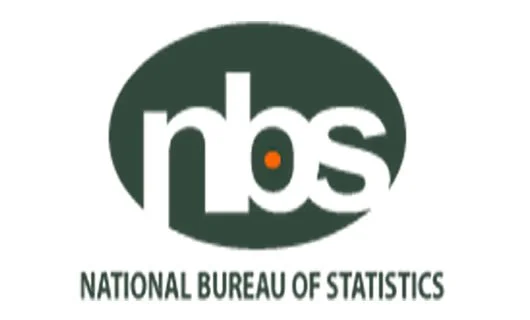The National Bureau of Statistics has revealed that out of the total households in Nigeria connected to the National grid, 85.2 percent are on estimated billing.
The Statistician General of the Federation and Chief Executive Officer of the NBS, Prince Adeyemi Adeniran, disclosed this in Abuja.
He said this when he spoke on the Nigeria Residential Energy Demand-Side Survey 2024 Report in Abuja.
Prince Adeniran noted that over 58 percent of households are connected to the national grid across the nine states surveyed, and 86.6 percent had electricity supply during the reference period.

He said the NREDSS 2024 was part of the Federal Government’s commitment to meet the energy needs of the country.
He said the survey also collected other valuable information that had produced insights into household energy usage patterns for cooking, lighting, and cooling.
He said: “The main objective for the conduct of the survey, which was conducted in nine states as a pilot case study, is borne out of the need to have a comprehensive understanding of energy consumption patterns among Nigerian households.
Also Read:
- Ex-Rivers LG chairmen visit Fubara, pledge loyalty
- In 10 years, AI will replace many doctors, teachers – Bill Gates
- Edo APC accuses PDP of planning to sponsor protests against Okpebholo
- Recall: INEC notifies Natasha, Akpabio
- Osun re-presents ex-finance commissioner as nominee on Living Trust Bank’s board
“Through this survey, we have gathered valuable data on a range of factors, including energy consumption patterns, access to electricity, energy affordability and energy efficiency.”
Adeniran said that the insights gained from this survey would inform policy making and planning efforts, adding that the data would be used to improve energy distribution and promote energy efficiency.
The NBS boss said that the data would also be used to expand renewable energy and address energy poverty.
Adeniran said the findings of the survey must be applied judiciously to address the gap faced in the supply side of the energy demand in the household sector.
Also, Inga Stefanowicz, Head of Section, Green and Digital Economy, Delegation of the European Union to Nigeria and ECOWAS, said the survey was critical for increasing access to energy in Nigeria.
Stefanowicz said the availability of data had hindered access to energy in Nigeria among other barriers
According to her, without solid data on supply and demand, the assessment of energy security and access will always remain flawed.
She said: “So far, Nigeria’s energy balance is a key element to inform the progress in achieving Sustainable Development Goal 4 and more generally in advancing energy policy which has been drawn from traditional or secondary data.
“So, with this survey, we are looking at an advancement.
“One of the important findings shows that 60 percent of households are connected to the national grid and most of them are in urban areas.
“Given the unreliability of the grid, most of them rely on petrol and diesel for which the annual expenditure is almost N330 billion for households in Nigeria.”
She said that the second phase of the data would be presented soon which focused on energy in the industrial sector.
Mustapha Abdullahi, Director-General, Energy Commission of Nigeria, said the survey was important because the indicators captured would help guide the energy transition programme of the federal government.
Abdullahi, represented by Mohammed Modu, the Director of Energy Information System in the commission, said the survey would provide inputs to guide policy formulation.
The News Agency of Nigeria reports that the survey was conducted in nine states: Akwa Ibom Bauchi, Ekiti, Oyo, Enugu, Kwara, Plateau, Kano and Sokoto.
NAN reports that for the survey, 900 households from each state were interviewed making a total of 8,100 households.
The survey was carried out by the NBS in collaboration with the Federal Ministry of Power, ECN, International Energy Agency, and EU.


